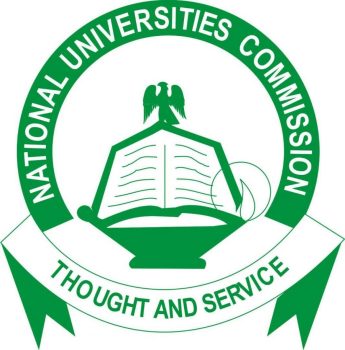
The Academic Staff Union of Universities (ASUU), has faulted the decision of the Federal Government on the dissolution of the Governing Councils of all federal universities in the country.
The union said that the move was inimical and a major setback toward the growth and development of university education in Nigeria.
The Chairman of the University of Jos chapter of the union, Dr Chris Yilgwan, stated this in an interview with NAN on Saturday in Jos.
The National Universities Commission (NUC) had on June 22, announced the dissolution of governing councils of all federal universities and boards of other agencies and parastatals in the country.
Yilgwan, who condemned the move, insisted that such a trend, if allowed to continue, would cripple the university system.
According to Yilgwan, the dissolution contravened the Act establishing federal universities, adding that it will stagnate the progress of the institutions.
“The recent dissolution of the governing councils of federal universities by the National Universities Commission, does not conform with the Miscellaneous Act of 2003 as amended.
“The Act provided a statutory tenure of governing councils of universities and so they cannot be dissolved at will like other boards.
“The governing council is the highest decision-making body of every university, and once it is dissolved without immediate replacement, it stalls every major decision in the university.
“So, we consider the dissolution as inimical to the progress of the university system and call on the federal government to rescind its decision,” he said.
He appealed to the government at all levels to allow the universities to operate in accordance with the law establishing them.
Meanwhile, the National Universities Commission (NUC) has urged the Academic Staff Union of Universities (ASUU) to stop misleading Nigerians on the new varsity curriculum.
The Academic Staff Union of Universities (ASUU), it would be recalled, condemned the Core Curriculum Minimum Academic Standards (CCMAS) of the National Universities Commission (NUC).

ASUU President Emmanuel Osodeke, in a statement on Friday, argued that the new curriculum structure posed a threat to quality university education and would erode the powers of the university senate in Nigerian universities.
According to the union, it is inexplicable that the National Universities Commission’s (NUC) pre-packaged 70 percent CCMAS contents were being “imposed” on the Nigerian University System (NUS).
This, it said, leaves university senates, who are statutorily responsible for academic programme development, to work on only 30 percent.
“ASUU posits that CCMAS portends serious dangers for quality university education in Nigeria. It is an erosion of University Autonomy and Academic Freedom which the Union has advocated and struggled to defend over time,” Osodeke said.
“CCMAS is an emasculation of the university Senate which, by law and practice, should superintend curriculum review, examinations and award of degrees and certificates in each university.
“ASUU suspects the imposition of CCMAS as part of the strategy for implementing the Nigerian University System Innovation Programme (NUSIP) of the World Bank. The Union rejected NUSIP in the 1990s. We also reject the imposition of CCMAS on Nigerian universities now!”
The ASUU president described the CCMAS as a nightmarish model of curriculum reengineering and an aberration to the Nigerian University System.
He added that the CCMAS documents were flawed both in process and in content, saying there was no basis for the 70 percent “untouchable CCMAS” which in his view cannot stand the test of critical scrutiny of university Senates.
But the NUC, in a statement by Deputy Executive Secretary, Academics, Dr Noel Saliu, on Friday in Abuja, said contrary to claims by ASUU, all universities were carried along in the development of the Core Curriculum Minimum Academic Standards.
Addressing the specific issues raised by ASUU, Saliu said that the assertion that there was no official communication from NUC to the Universities on the review of the Benchmark Minimum Academic Standard (BMAS) was not correct.
“Vice-Chancellors can attest to the fact that the commission has been communicating with them on the issue over the last five years.
”In addition, several virtual and on-site meetings were held to intimate them of the curriculum review, and provide them with updates from time to time.
”The claim that there is no evidence to show that the universities were involved in the true sense of revision of the BMAS development and the subsequent implementation of the CCMAS in the university is also far from the truth.”
He added that the curriculum review process started in 2018 with experts on various subjects in Nigerian universities producing the draft documents.
The Deputy Executive Secretary said that the draft was further forwarded to other experts in Nigerian universities for their inputs.
”Comments received from universities that responded formed part of the working documents forwarded to the various curriculum review panels,” he said.
Saliu added that when the initial drafts of the CCMAS were ready, they were also circulated amongst Nigerian academics, and their inputs were synthesised and incorporated into the respective programmes.
He reminded ASUU that the process of getting and incorporating inputs from Nigerian Universities had been the tradition of NUC since 1989, and had not faltered.
On the components ASUU claimed were left out, Saliu said that the commission had informed universities from the beginning of the exercise that it would provide for 70 per cent of the minimum course requirements for graduation in Nigerian universities.
The Deputy Executive Secretary said that the universities were expected to make up the remaining 30 per cent.
”The commission did not arbitrarily arrive at this ratio.
“As a matter of fact, the NUC had in previous minimum standards documents, made provision for 100 per cent curriculum requirements to Nigerian universities.
”It is instructive to note that in a retreat with Vice-Chancellors of Nigerian Universities in 2017, the NUC proposed to the universities a 50/50 NUC/Universities Curriculum Provision.
”This was rejected as the universities felt that the action was drastic and that the proposal should be gradually implemented; they proposed 80:20 NUC/ University contribution to the curriculum.
”However, the NUC during the comprehensive curriculum review, decided to adopt a 70:30 NUC/University ratio for the curriculum contents,” he added.
Saliu explained that the idea behind the 70:30 ratio was to eventually place the curriculum in the domain of the universities, where it belongs.
He said the NUC believed that with the full implementation of the idea, universities would run the general requirements for their programmes in line with global realities, such that they would introduce courses based on their peculiarities.
The Deputy Executive Secretary further told ASUU that even the so-called NUC component of the curriculum was determined by Nigerian academics, with the commission only coordinating.
”Based on the foregoing, even when courses are omitted in the 70 per cent CCMAS, such courses can be introduced by the universities in the 30 per cent component.
”Besides, the provision made in the CCMAS is the minimum requirement and the universities can go beyond the minimum stipulations, provided the students are not overloaded,” he explained.
Saliu reminded ASUU that the commission was empowered by law to lay minimum standards for all universities and other institutions of higher learning in the federation.
He said the National Minimum Standards and Establishment of Institutions Act 2004, also empowered NUC to accredit degrees and other academic awards in consultation with universities, with the approval of the President through the minister of education.
He recalled that it was after the enactment of the Act that the commission developed the first set of Minimum Academic Standards in 1989 for all academic programmes in Nigerian Universities at that time.
▪︎ By NAN, with additionalreport by Channels Television.


